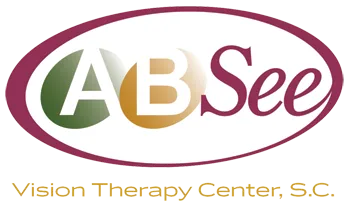
Learning Related Vision Enhancement
Vision is More Than 20/20
Most people believe that adequate vision means simply having 20/20 acuity, or seeing clearly in the distance. Vision, how the brain and eyes work together, has a tremendous impact on the learning process for both children and adults.
Vision and Learning
Many children and adults do not realize that their struggles in the classroom and/or workplace may not be linked to intelligence or how hard they are trying. Instead, they may not be able to visually process the information put before them.
Not knowing the cause of classroom problems, and in adult life skills problems, can have a detrimental effect on self-esteem and behavior. Many children labeled as classroom problems can grow into troubled teens and eventually struggling adults if their visual problems are not diagnosed and treated. One out of four children and seven out of ten juvenile delinquents have a vision disorder that is interfering with their ability to achieve.
School Screenings
One out of four children enters school lacking the visual skills necessary to perform near point tasks such as reading, handwriting and spelling.
These children usually pass school screenings, which often evaluate only visual acuities.
Many screenings do not test near vision skills or visual function including: tracking, focusing, eye teaming, or perceptual skills. Screenings may give both parents and teachers a false sense of security regarding a child's visual readiness.
Undetected Vision Problems
Many children who have problems adjusting to school demands have underlying undetected vision problems. Common behaviors associated with these problems are:
•Loses place, skips lines, and omits small words when reading
•Confuses letters, numbers or words
•Writing is crooked or poorly spaced
•Has emotional outbursts or shows aggressive behaviors
•Becomes easily distracted or fatigued (diagnosed with ADD or ADHD)
•Low comprehension of written materials
The five most common undetected vision difficulties which cause the above learning behaviors are:
1. Delayed or incomplete vision development
2. Focusing or eye-teaming problems
3. Poor eye movement control and visual tracking
4. Amblyopia (lazy eye) and/or Strabismus (turned eye)
5. Visual perception and visual information processing problems.
A B See utilizes vision therapy as well as lens treatment and light therapy to treat the above problems in order to enhance learning. Many adults who have not had intervention for these problems early in life may still benefit from therapy in order to live a more fulfilling and rewarding life.
Get Started!
To schedule a Comprehensive Developmental Eye Exam call (920) 722-2020.
If you have specific concerns regarding academic performance, or have been diagnosed with a lazy eye (amblyopia) or eye turn (strabismus), please inform us to we can schedule your appointment accordingly.
Information needed:
•Eye health evaluation within the last year
•Pertinent medical information and records
•Completed initial evaluation packet and symptom checklist, both provided by A B See Vision Therapy Center. It is available on our website, or we can fax, email or mail it to you.
Evaluation Process
After testing is completed, you will have a conference with Dr. Dejmek to review the diagnosis and treatment plan.
When vision therapy is recommended, it typically involves weekly in-office therapy sessions supplemented by daily home activities.
The length of the therapy program is based on individual diagnosis and treatment goals. Progress examinations will be conducted periodically throughout the therapy program.
